Avios Group under investigation by HMRC for its VAT policies
Links on Head for Points may support the site by paying a commission. See here for all partner links.
IAG, the parent company of British Airways, Iberia and Aer Lingus, issued its first half financial results yesterday.
Tucked away in the notes is a lengthy statement explaining that Avios Group is under investigation for its VAT returns, dating back to the start of 2018.
IAG is not commenting on the issue and the statement itself have could been clearer.
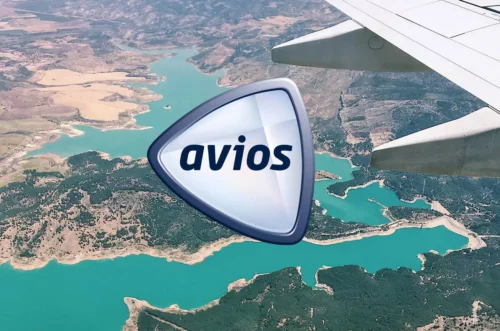
The debate appears to go like this:
- Avios Group does not charge VAT when you buy Avios from the group, either directly or via Avios subscription, or to third parties who buy points (who would reclaim the VAT in most cases, so they are not directly impacted)
- You don’t pay VAT when you buy a flight, so to the extent that buying Avios is simply pre-paying for flights, Avios Group is arguably correct not to charge VAT on Avios sales
- Avios Group states that if Avios are redeemed for items which do incur VAT, such as wine, VAT is paid at that time on the value of the points redeemed
So far, so simple – so what’s the problem?
One issue could be that Avios sales carry a substantial profit margin. Imagine that you buy £100 of Avios and book a flight with them, but Avios Group only hands over £60 to the airline. The flight may be zero rated for VAT but what is the VAT treatment of the £40 margin?
HMRC also seems to be taking aim at the idea of Avios being a ‘club’, which would be liable to VAT on membership ‘fees’. A quick look at the VAT rules on ‘subscriptions’ or ‘memberships’ shows that a key issue is how the fee is apportioned if some benefits – such as a club magazine – are zero rated for VAT but other benefits are not.
It is possible that the expansion of Avios into non-flight earning and non-flight spending is coming home to roost. HMRC has always said that frequent flyer miles have no taxable value, since they are a rebate for money spent on flights. This is no longer necessarily the case for many of the Avios in circulation. It is also the case that they are no longer always redeemed for zero rated activities (ie flights).
We are unlikely to get to the bottom of this one for some time. As the statement below says, if Avios Group and HMRC do not come to an agreement and decide to go to a tax tribunal, IAG is required to lodge the whole of the disputed sum with HMRC first.
The sum involved would be so large that we are told it may be ‘material’ in the context of the parent company, not just Avios Group itself.
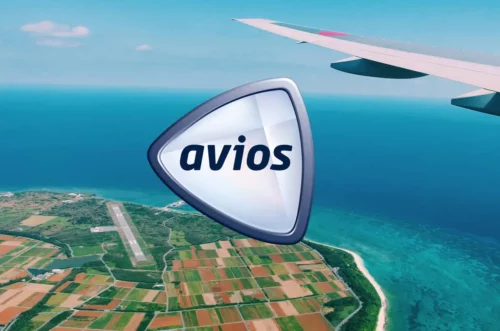
Here is the official statement from the accounts. Bolding is mine, the typos are from IAG!
A ‘protective notice’ is a way to extend the typical four year restriction on re-opening old VAT submissions. If HMRC had not done this then it would have lost the ability to challenge payments made in 2018.
At June 30, 2023, and through to the date of this report, His Majesty’s Revenue and Customs (HMRC) has issued protective notices of VAT assessments for the 19 months ended September 2019 to Avios Group (AGL) Limited, a controlled undertaking of the Group trading as IAG Loyalty. At the date of this report none of these protective notices of assessment are due for payment.
During the second quarter of 2023, and while its enquiries are ongoing at the date of this report, HMRC shared with the Group its emerging view on the appropriate VAT accounting, which differs to the current approach by IAG Loyalty. HMRC’s emerging view asserts that the charges made by IAG Loyalty are for participating / membership in the Avios scheme and the associated charges and are subject to VAT.
IAG Loyalty accounts for VAT depending on the nature of the goods or services for which Avios are redeemed, the vast majority of which are flights, and zero-rated. IAG Loyalty’s VAT accounting has and continues to be based on historical rulings issued by HMRC.
As at the date of this report, this emerging view did not consider the validity of the rulings HMRC has previously issued with regard to IAG Loyalty’s VAT accounting. Accordingly, and while having issued the protective notices, HMRC has not confirmed whether it considers its emerging view to be retroactive or only prospective in nature.
The Group expects further developments in this matter during the remainder of 2023, which may include HMRC issuing an update to its emerging view. Given the early stages of HMRC’s enquiries there remain a number of possible scenarios that could eventuate.
The Group has reviewed HMRC’s emerging view with its legal and tax advisors and considers it has strong arguments to support its VAT accounting, including having received rulings previously from HMRC on the matter, and therefore does not consider it probable that an adverse ruling will eventuate. Accordingly, the Group does not consider it appropriate to record any provision for this case at June 30, 2023.
The Group, in conjunction with its advisors, considers the disclosure of a potential range of exposures, associated with the aforementioned possible scenarios that could eventuate, could prejudice seriously the position of the Group in its ongoing engagement with HMRC.
Subsequent to the issuance of the emerging view, the Group continues to engage with HMRC on the underlying facts, circumstances and technical analysis of the matter. Should the Group and HMRC be unable to reach agreement on the appropriate VAT accounting, then the Group will have the ability to advance the case to an independent tax tribunal.
To enable the Group to advance to an independent tax tribunal, it will need to pay, without admission of liability, to HMRC the total amount of assessments issued at the time of application to the independent tax tribunal, which will be recoverable, in part or in full, should the Group be successful in the case. Until HMRC further progresses its enquiries, it is not possible to determine the payment required, if any, but any potential payment may result in a material cash outflow from to the Group.
PS. If you are not a regular Head for Points visitor, why not sign up for our FREE weekly or daily newsletters? They are full of the latest Avios, airline, hotel and credit card points news and will help you travel better.
To join our 70,000 free subscribers, click the button below or visit this page of the site to find out more. Thank you.
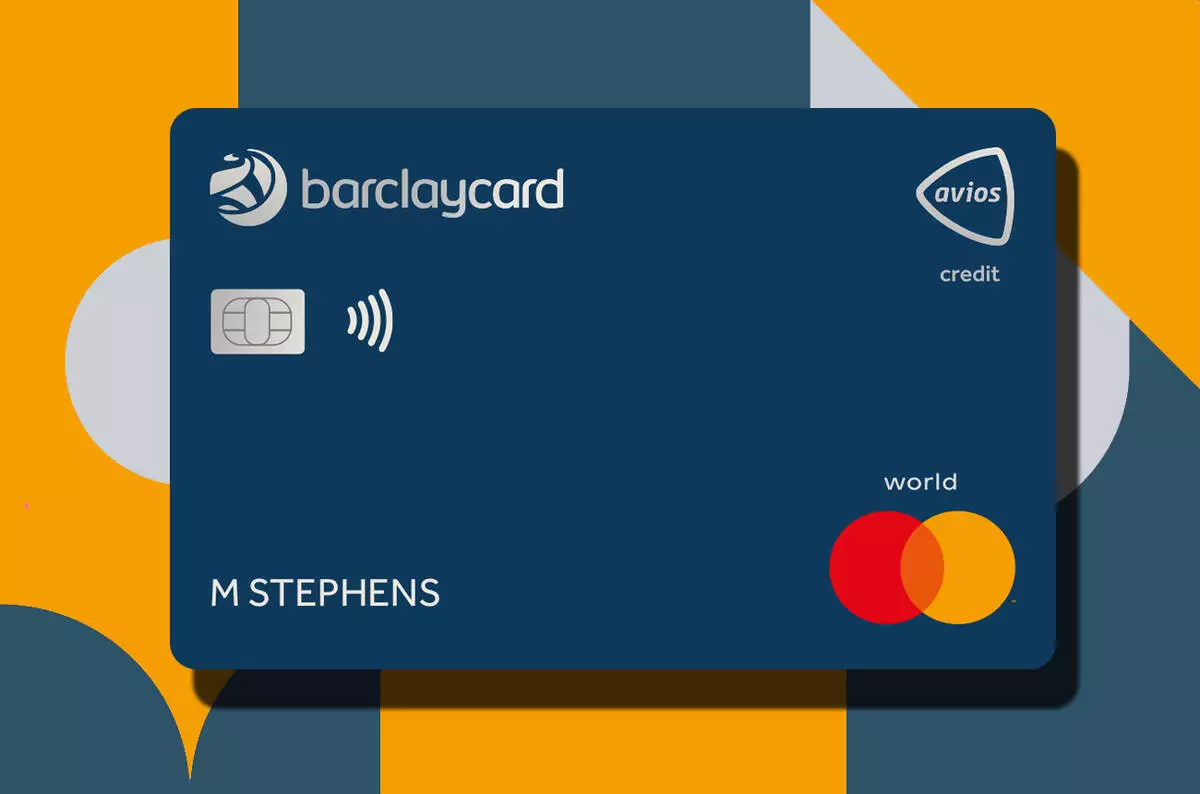
How to earn Avios from UK credit cards (September 2025)
As a reminder, there are various ways of earning Avios points from UK credit cards. Many cards also have generous sign-up bonuses!
In February 2022, Barclaycard launched two exciting new Barclaycard Avios Mastercard cards with a bonus of up to 25,000 Avios. You can apply here.
You qualify for the bonus on these cards even if you have a British Airways American Express card:

Barclaycard Avios Plus Mastercard
Get 25,000 Avios for signing up and an upgrade voucher at £10,000 Read our full review

Barclaycard Avios Mastercard
Get 5,000 Avios for signing up and an upgrade voucher at £20,000 Read our full review
There are two official British Airways American Express cards with attractive sign-up bonuses:

British Airways American Express Premium Plus Card
30,000 Avios and the famous annual Companion Voucher voucher Read our full review
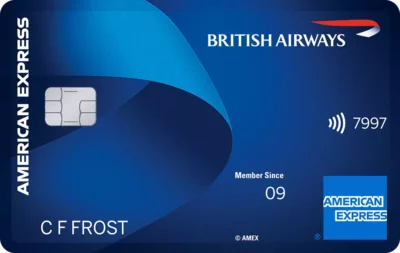
British Airways American Express Credit Card
5,000 Avios for signing up and an Economy 2-4-1 voucher for spending £15,000 Read our full review
You can also get generous sign-up bonuses by applying for American Express cards which earn Membership Rewards points. These points convert at 1:1 into Avios.
SPECIAL OFFER: Until 14th October 2025, the sign-up bonus on the American Express Preferred Rewards Gold Credit Card is doubled to 40,000 Membership Rewards points. This would convert to 40,000 Avios! The spend target is changed to £5,000 within SIX months of approval. T&C apply. Click here to apply.
SPECIAL OFFER: Until 14th October 2025, the sign-up bonus on The Platinum Card from American Express is increased to 80,000 Membership Rewards points. This would convert to 80,000 Avios! The spend target is changed to £10,000 within SIX months of approval. T&C apply. Click here to apply.

American Express Preferred Rewards Gold Credit Card
Your best beginner’s card – 40,000 points, FREE for a year & four airport lounge passes Read our full review

The Platinum Card from American Express
80,000 bonus points and great travel benefits – for a large fee Read our full review
Run your own business?
We recommend Capital on Tap for limited companies. You earn points worth 0.8 Avios per £1 on the FREE standard card and 1 Avios per £1 on the Pro card. Capital on Tap cards also have no FX fees.

Capital on Tap Visa
NO annual fee, NO FX fees and points worth 0.8 Avios per £1 Read our full review
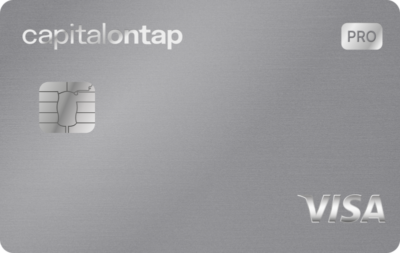
Capital on Tap Pro Visa
10,500 points (=10,500 Avios) plus good benefits Read our full review
There is also a British Airways American Express card for small businesses:
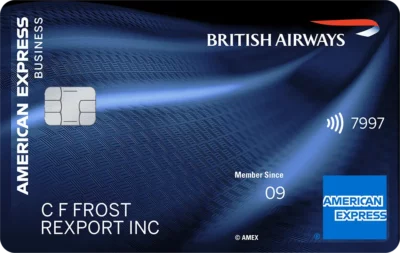
British Airways American Express Accelerating Business Card
30,000 Avios sign-up bonus – plus annual bonuses of up to 30,000 Avios Read our full review
There are also generous bonuses on the two American Express Business cards, with the points converting at 1:1 into Avios. These cards are open to sole traders as well as limited companies.
SPECIAL OFFER: Until 14th October 2025, the sign-up bonus on The American Express Business Platinum Card is increased to 120,000 Membership Rewards points. This would convert to 120,000 Avios! The spend target is changed to £12,000 within three months of approval. T&C apply. Click here to apply.
SPECIAL OFFER: Until 14th October 2025, the sign-up bonus on The American Express Business Gold Card is TRIPLED to 60,000 Membership Rewards points. This would convert to 60,000 Avios! The spend target is changed to £6,000 within three months of approval. The card remains free for the first year. T&C apply. Click here to apply.

The American Express Business Platinum Card
120,000 points when you sign-up and an annual £200 Amex Travel credit Read our full review

The American Express Business Gold Card
60,000 points sign-up bonus and FREE for a year Read our full review
Click here to read our detailed summary of all UK credit cards which earn Avios. This includes both personal and small business cards.
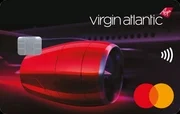


 Rob
Rob 




Comments (106)